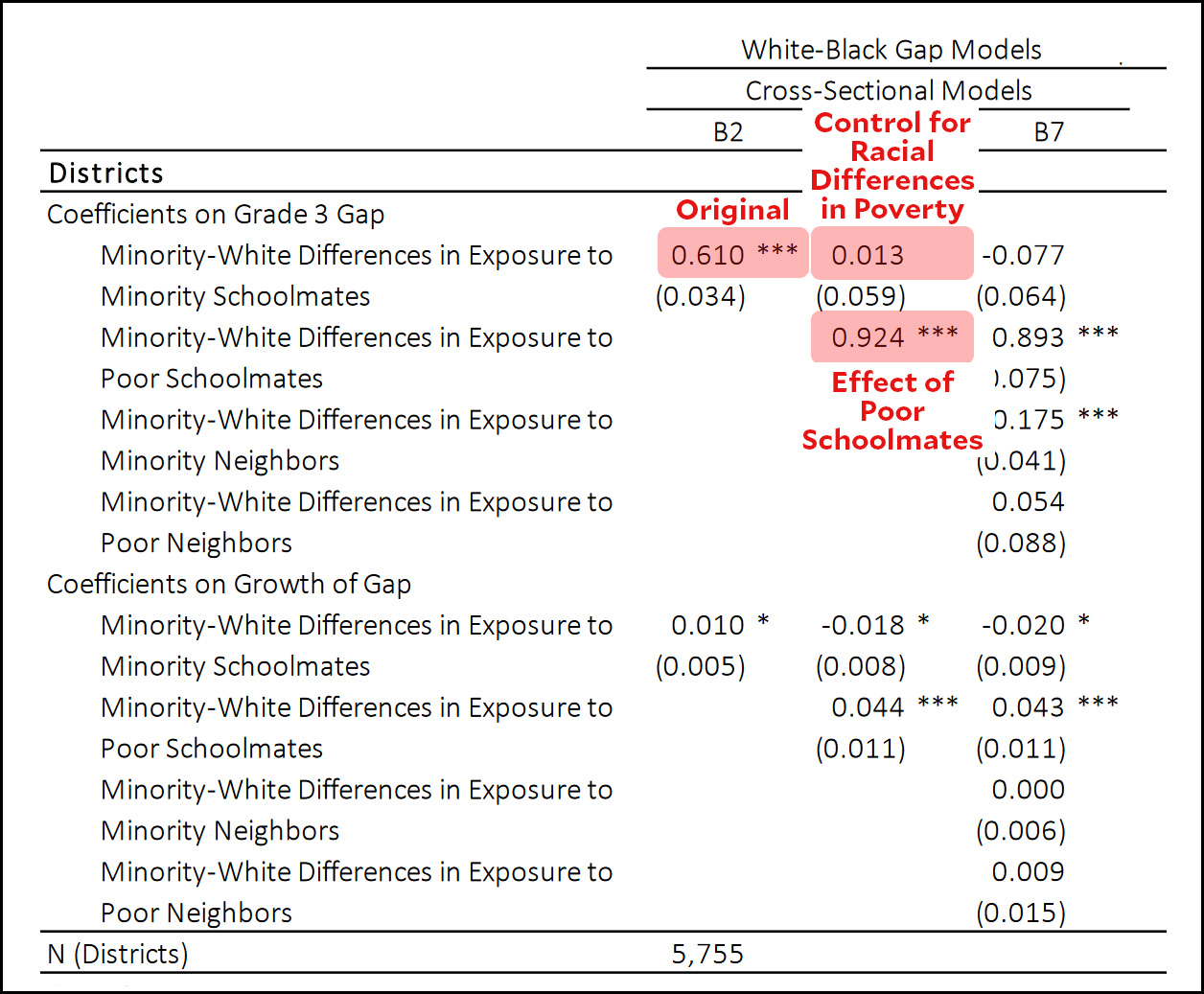
Brittany Murray/SCNG via ZUMA
Sean Reardon has some interesting new research on the black-white achievement gap in primary school today. It’s mostly contained in Table 5 of his report, which is a little hard to read, but here it is:

Even after controlling for economic status, attendance at a school with a big racial attendance gap (i.e., heavily black or heavily white) leads to big differences in black-white achievement scores (0.610). However, once you control for differences in school poverty, the effect goes away (0.013).
What’s left is a big effect in exposure to poor schoolmates (0.924). In other words, this confirms what we’ve known for a long time about the effect of concentrated poverty. If a black student goes go to a school that’s heavily black but middle class, it’s no big deal. But if a black student goes to a school that’s heavily poor, he’s doomed.
Needless to say, schools that are heavily black tend to also be heavily poor, so this effect can be hard to tease out without careful study. Nonetheless, Reardon is clear:
Using scores from hundreds of millions of tests taken in the last decade by students in thousands of school districts, we find a very strong link between racial school segregation and academic achievement gaps. More segregated school systems have larger achievement gaps, on average, and their gaps grow faster during elementary and middle schools than in less segregated ones.
….Why is this? We find that the association between racial school segregation and achievement gaps appears to operate entirely through differences in exposure to poor schoolmates….Racial segregation matters, therefore, because it concentrates black and Hispanic students in high-poverty schools, not because of the racial composition of their schools, per se.
If you want to take away any good news from this, here’s a glimmer of hope: If the problem really is class more than race, then we can make a case for desegregating our schools based on class. According to Reardon, this would actually be more effective, and it’s probably slightly less incendiary than desegregation plans based on race.
This is, to be clear, only the slightest glimmer of hope. Parents of middle-class kids will probably resist integration with poor kids just as much as parents of white kids resist integration with poor kids. But you never know. Anything that turns down the dial a bit could be helpful.

















